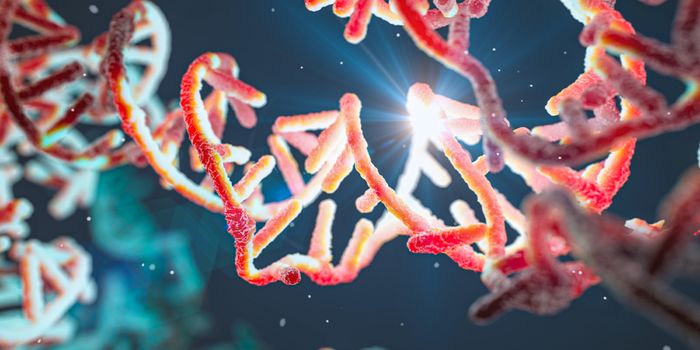Mitochondria Can Signal to the Immune & Nervous Systems
Mitochondria are little organelles that have long been known as the powerhouses of the cell. But in recent years, scientists have found that they serve more functions than just providing energy. New research has shown that mitochondria are involved in innate immunity; they help control a biochemical pathway that can eliminate pathogens, but which also causes damage if overactivated. The findings have been reported in the EMBO Journal.
Pathogens that infect cells and certain types of inflammatory molecules can both trigger a molecule called NF-κB, a transcription factor that can regulate the expression of certain genes.
"Depending on the stimulus and the cell type, NF-κB activation results in protection from cell death and increased synthesis of proteins required for the elimination of bacteria or viruses," explained Professor Konstanze Winklhofer of Ruhr University Bochum, Germany.
When NF-κB is excessively activated, the pathway changes from a protective one to a chronically inflammatory one, so these signals have to be very carefully controlled to properly maintain health.
This research showed that mitochondria play an essential role in the regulation of the NF-κB signaling pathway. When the pathway is activated, a platform assembles on the outer membrane of the mitochondria, which boosts NF-κB activation. Because mitochondria have a large surface area, the signal is amplified, explained Winklhofer. The study authors noted that mitochondria also carry signaling components that can help form complexes known as signalosomes, or make modifications to proteins that facilitate cellular signaling, which can be done by a mitochondrial kinase known as PINK1.
Mitochondria are also are mobile. They can move around cells and latch onto various proteins, strengthening their abilities as signal transducers. The scientists found that mitochondria can escort activated NF-κB to the membrane of the nucleus, so a subunit of the transcription factor can get inside.
While mitochondria help activate the NF-κB signaling pathway, they can also play a role in deactivating it too.
PINK1 and another molecule called Parkin both influence NF-κB signaling through mitochondria. PINK1 and Parkin are also both associated with the development of Parkinson's disease.
"Our findings explain why mutations resulting in a loss of PINK1 or Parkin function promote neuronal cell death under stress conditions," noted Winklhofer. "Remarkably, our findings show that Parkinson's disease patients with mutations in the PINK1 or Parkin gene show an increased vulnerability to various infections caused by intracellular pathogens. Thus, our study also helps to gain a better understanding of the interfaces between the nervous and immune system."
Sources: Ruhr-Universitaet-Bochum, EMBO Journal









